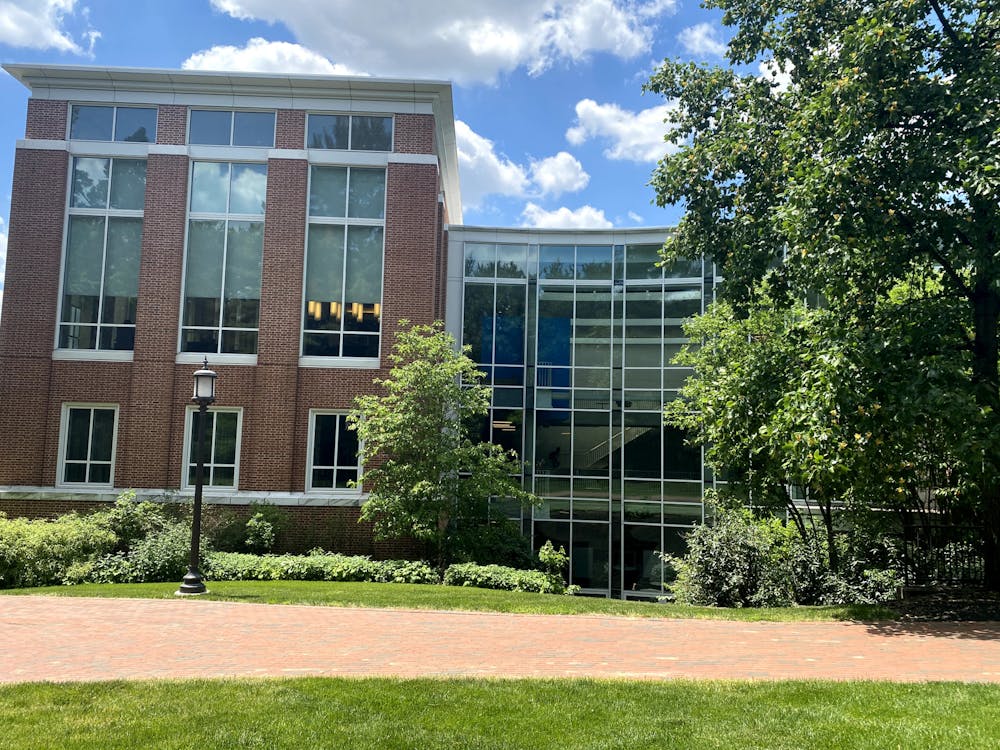Great Talk and the Alexander Grass Humanities Institute hosted a discussion over the question “Is the Supreme Court Still the Bastion of U.S. Democracy?” on Feb. 2. The event was attended by Hopkins faculty, students and the general public.
William Egginton, the moderator and director of the Alexander Grass Humanities Institute, opened the discussion by addressing a recent article published in The Atlantic by panelist Kimberly Wehle, a professor at the University of Baltimore School of Law.
Wehle’s article discussed the Supreme Court case involving the Occupational Safety and Health Administration (OSHA), in which the Court ruled that the government body that establishes federal vaccine laws should be Congress.
Wehle argued during the discussion that this move was a power grab by conservative justices.
“This court was quite aggressive to lay out its own views on what kinds of vaccine regulations might be okay. Honestly, this is the sleeper issue of the Supreme Court,” she said. “We’re going to see this Court... roll back on the role of federal agencies, and we’ve got a 6-3 conservative majority. These folks aren’t elected; they’re not accountable to the public.”
Alli Abolarin, a first-year doctoral student in the Whiting School of Engineering, wrote that he found Wehle’s discussion of the OSHA ruling particularly impactful in an email to The News-Letter.
“I found [Wehle]’s statements on the power grab by the Supreme Court from agencies to be of importance like in the scenario of OSHA’s vaccine mandate,” he wrote. “Agencies are heavily involved in the legislative process as they fill in the knowledge gaps of the legislative branch.”
Panelist Michael Klarman, an American legal historian and scholar of constitutional law, argued that the Supreme Court has not always been an accurate representation of the general public.
“Democrats have won seven of the last eight popular votes, but because of the vagaries of the Electoral College, they only won the presidency five times — and because of the malapportionment of the Senate, 50 Democratic Senators represent 40 million more people than 50 Republican senators,“ he said. “Five of the six Republicans on the Court were appointed by presidents who initially entered the White House without a plurality of the popular vote.”
This skewed representation of political parties was a grievance that many of the panelists had, including Wehle. Klarman highlighted the failures of the current electoral process in showcasing problems within American democracy.
Klarman elaborated on the meaning of “conservative” when talking about the Supreme Court.
“They’re conservative in the sense that they reach conservative policy outcomes — policy outcomes that most voters who vote for the Republican Party would support — so they will strike down affirmative action, they will overturn Roe, they will expand gun rights, they will uphold laws that make it more difficult to vote, they will strike down vaccine mandates,” he said. “They’re not conservative in the traditional sense... they’re not conserving the status quo.”
Joey Jackson, a trial attorney and CNN/HLN legal analyst, expressed his concerns over the responsibility of the Supreme Court to the American people. He emphasized that the Court is not being held accountable.
“Democracy to me means that you have that accountability, that you have that trust, that you have that ability to recall those people who are acting adverse to your interest,” he said.
William Kristol, a neoconservative editor, writer and commentator, said during the discussion that the Supreme Court is more conservative than most of the nation.
“The Court is to the right of the nation now, just empirically. Like [Klarman] said, if you want to see what they’re going to decide, take the average Republican voter,” he said. “If they keep doing this, there will be a pretty big reaction.”
However, Kristol expressed that it is premature to say how the population and government will react to the Supreme Court’s actions and that he feels the Court does not have an extreme conservative majority.
Kristol added his thoughts on the recent conservative rulings of the Supreme Court.
“The Republican Party has been radicalized in a way that’s pretty unusual in American history,” he said. “These judges [are] acting in an ideological way that’s sort of different from even the somewhat strong left or strong conservative judges of the past — and seeming to be emboldened to do so. The reason they’re emboldened to do so is because the Republican Party is the way it is.”
Ariane Thomas, the director of the Professional Counseling Program at the University of Pennsylvania, wrote that the comments made by panelists revealed issues inherent to the current system in an email to The News-Letter
“It escapes me how [the Supreme Court] can continue to be seen as a bastion of a democracy when they have demonstrated a willingness to rule in a manner that doesn't reflect the values of most of the individuals in that democracy,” she wrote.
Wehle made a call-to-action for the American people and with hopes that the younger generation will find it necessary to make changes to the current political system.
“How does this need to be fixed? The American public needs to wake up. They need to wake up and realize the door is closing on their freedoms,” she said. “It’s [about] capturing [the younger generation]’s imagination and realizing they need to stand up for their own rights and hang on to them.”





